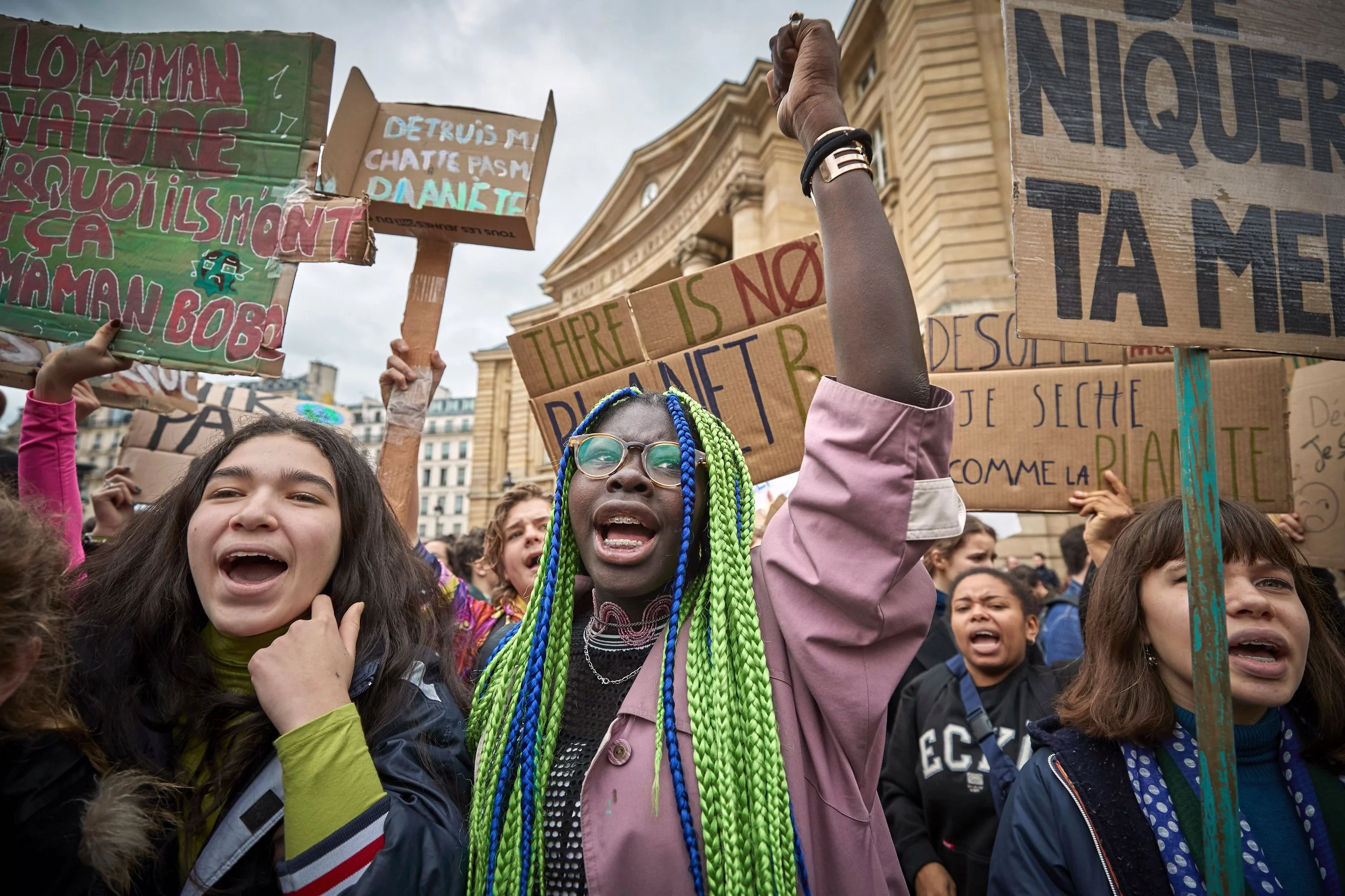Demonstration against climate change on March 15, 2019 in Pretoria. Photo by PHILL MAGAKOE/AFP/Getty Images.
In March 2019, students in more than 100 countries protested against the lack of international action on climate change. Inspired by 16-year-old Swedish activist, Greta Thunberg, the Youth Strike 4 Climate demonstrations garnered widespread media attention and, despite criticism from some politicians, gave fresh impetus to the policy conversation around climate action. But is this case an outlier for youth involvement in politics and are there other ways, beyond walking out of school, for young people to make their voices are heard?
Across the world, young people are often overlooked in political processes. For example, 60% of Africa’s population is aged under 25, but the median age of its leaders is 62. Meanwhile in Europe, political scientists are increasingly concerned about the effects of an ageing population which numerically marginalizes the concerns of younger voters. Low youth turnout during elections is frequently cited as evidence that the young are too apathetic to participate in democracy. However, these demographic realities suggest that even if electoral turnout were higher among young people, their opinions would still struggle to effect change through traditional political processes.
In a recent Chatham House survey conducted by the Common Futures Conversations project, we asked 3,487 young people from 13 countries across Africa and Europe about their engagement with politics. The respondents were asked to prioritize the importance of a list of political issues based on a range of factors such as which issue was most pressing in their country and which they would choose to spend $1 billion addressing.
In this blog series, some of the key questions arising from the survey data will be explored, including:
· Why is there a difference between the political issues deemed priorities for individual countries and those selected as priorities for the world?
· Why do respondents claiming to be highly engaged in politics also feel ignored by their politicians?
· What accounts for the areas of similarity and difference between African and European responses?
· Why is social media not seen as a useful forum for political debate?
· Why is education the issue most people would spend $1 billion on?
Over the following months, we will explore how young Africans and Europeans answered these questions in a series on Perspectives. In the meantime, to find out more about the full results of the survey, including comparisons of the responses from Africa and Europe, please click here



